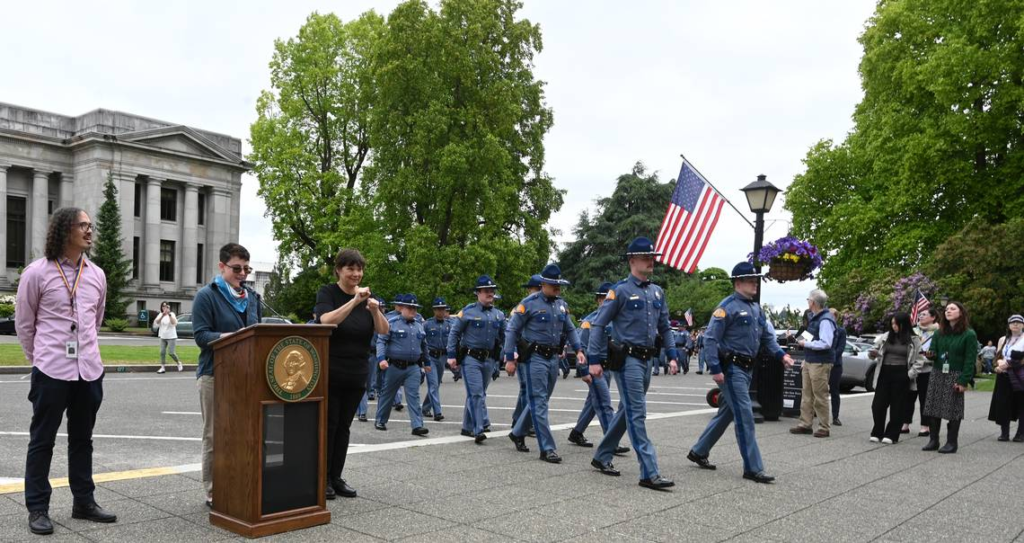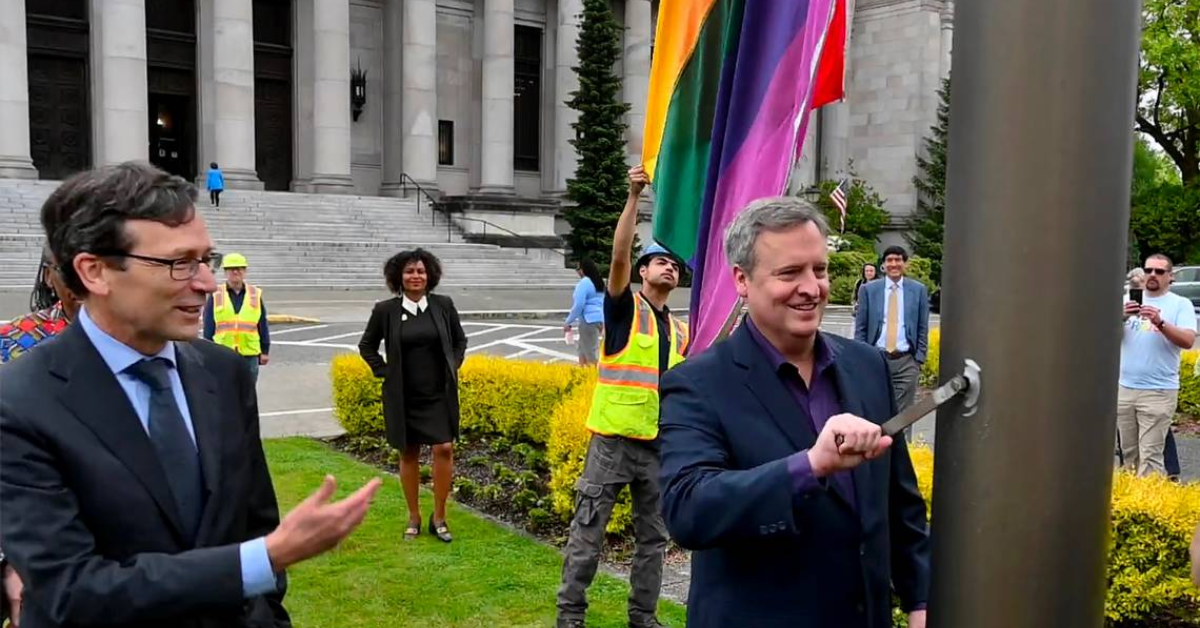The Washington State Patrol (WSP) issued a public apology for disrupting a Pride flag raising ceremony in Olympia, which took place earlier this week. The incident has sparked widespread criticism and raised concerns over the actions of law enforcement during a Pride event meant to celebrate the LGBTQ+ community.
The incident occurred when WSP officers arrived at the location where the Pride flag was to be raised at the state capitol. According to reports, the officers were seen halting the ceremony and instructing the organizers to lower the flag, citing concerns that the flag raising could be a violation of state protocols. This unexpected interruption caught the event organizers and attendees off guard, leading to confusion and disappointment among the crowd.
The decision to stop the flag raising was quickly condemned by local leaders, LGBTQ+ rights organizations, and the general public. Many felt that the actions of the State Patrol were an unwarranted display of authority that undermined the significance of the Pride event. Pride celebrations, particularly those in government buildings or areas that serve as symbols of civic power, are often seen as an important opportunity for the LGBTQ+ community to feel seen and heard, and the flag raising was a key symbol of solidarity.
Following the outcry, WSP issued a statement expressing regret for the disruption. The statement acknowledged that the decision to intervene was not appropriate and that it caused distress among the Pride event participants. The State Patrol clarified that their actions were not meant to disrespect the LGBTQ+ community but were based on an internal misunderstanding about the protocol for raising flags on state property.
The apology has been met with mixed reactions. Some individuals within the LGBTQ+ community have accepted the apology, emphasizing the importance of understanding and dialogue in such situations. However, others have criticized the apology as insufficient, arguing that it does not fully address the harm caused by the interruption or the broader issue of police involvement in LGBTQ+ events.
Community leaders and activists have called for more concrete actions to ensure that similar incidents do not happen in the future. They suggest that additional training for law enforcement officers on LGBTQ+ issues and community events could help prevent misunderstandings and foster better relationships between the police and marginalized communities. Others have called for a more transparent investigation into the events that led to the disruption, demanding accountability for the officers involved.

The incident in Olympia is part of a broader pattern of tensions between law enforcement and the LGBTQ+ community in various parts of the United States. Over the years, many Pride events have faced disruptions, either by law enforcement or by counter-protesters, and this latest incident has further underscored the need for continued advocacy and education around LGBTQ+ rights and inclusion.
In response to the controversy, several local LGBTQ+ groups have organized discussions and forums to address the broader issue of police involvement in Pride events. These discussions have centered around whether or not law enforcement should have a role in Pride celebrations, with some arguing that a history of police violence against the LGBTQ+ community makes it difficult for many to feel comfortable with police presence at such events.
At the same time, there has been a broader conversation about the role of public institutions in recognizing and supporting the LGBTQ+ community. Many advocates argue that government buildings and state-run institutions should actively support the rights and visibility of the LGBTQ+ community, especially during Pride Month. The interruption in Olympia highlights the tensions between institutional authority and the desire for LGBTQ+ communities to have their voices heard and celebrated in public spaces.
In the coming weeks, it remains to be seen how the Washington State Patrol and other law enforcement agencies will respond to the criticism and what steps will be taken to repair the relationship between the police and the LGBTQ+ community in Olympia and beyond. The hope is that this incident will spark a larger conversation about the importance of inclusivity, respect, and understanding in public events, with a particular focus on Pride celebrations, which are meant to honor the history, struggles, and achievements of the LGBTQ+ community.
While the apology issued by the WSP is a step toward mending relations, it is clear that much more work needs to be done to ensure that Pride events and other celebrations of diversity are treated with the respect they deserve. As the conversation continues, there is a growing recognition that the future of Pride celebrations should not only be about raising flags but also about raising awareness, understanding, and support for the LGBTQ+ community.








